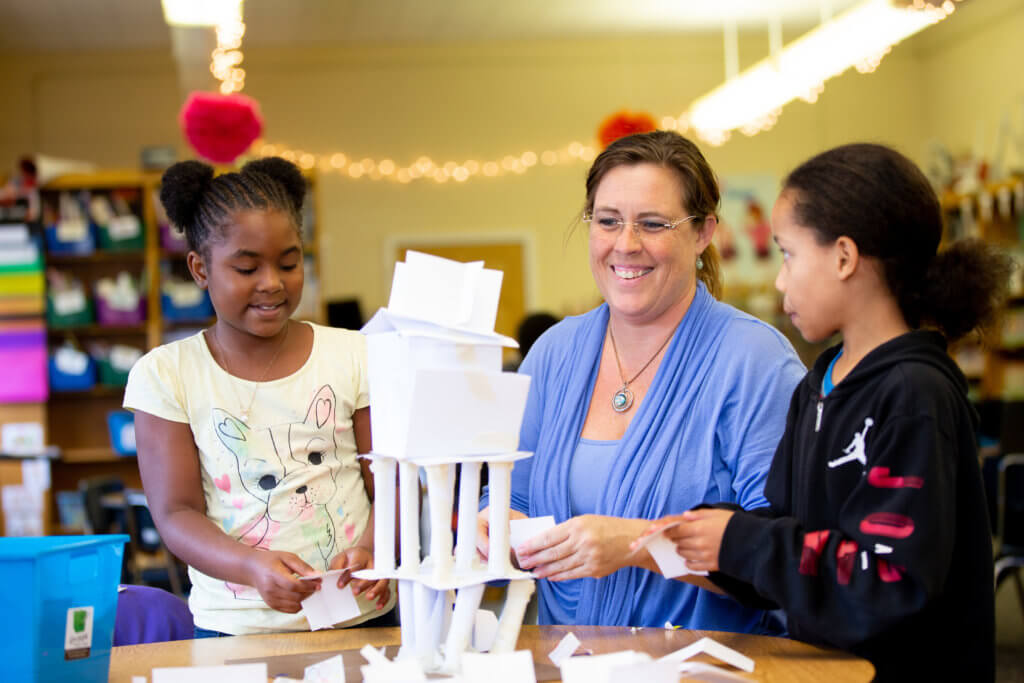Choice Schools is reimagining education using supportive, engaged administration to make an impact on the lives of teachers and children. Charter schools represent a unique opportunity to use different models of education for student success. This is why now, more than ever, parents and teachers are considering charter schools as a viable educational option. https://choiceschools.com/blog/choice-schools-news/choice-is-awarded-2021-best-brightest-companies-to-work-for/p
The National Center for Educational Statistics recently revealed that the number of children enrolled in charter schools has quadrupled from 0.3 million to 1.6 million over the last ten years alone.
The most commonly cited benefits of charter schools typically include student-led learning and smaller class sizes (most charter school classes have an average of 19.8 students per teacher, as opposed to 21.3 on average in traditional public education). Both can make this a desirable solution for parents seeking the best educational setting for their kids and for teachers looking for options or opportunities in their community..
However, anyone considering charter schools will benefit from delving deeper into what this educational experience can offer. Read below as we explore what it means for teachers and students to be in a charter school to help anyone considering this decision.
The Benefits of Charter Schools
# 1 – Unique Learning
Charter schools focus on a flexible, student-led learning environment combined with adherence to state-based educational expectations, making them very attractive to some teachers, parents, and students. The focus on a flexible, student-led learning environment is combined with adherence to state-based educational expectations. This is why Choice Schools offers four unique learning models, to give students and teachers their best environment to thrive within.
It is important for parents and teachers to research the reporting and school board of any charter school to understand their educational model and to find the best fit.
# 2 – More Options for Parents and Teachers
Gone are the days when location limits where you can get your education. Charter schools are giving families more options to find the right fit in their local area and beyond. Not having limits on location leads to an increase in educational choice.
With more educational options uninhibited by location and districting, Choice Schools offers new possibilities for a new generation of learners.
# 3 – Higher Parental Involvement
Parents of children in traditional or private schools are often excluded from conversations regarding curriculums, but most charter schools actively encourage this involvement.
This enables the development of lessons with each education model engaging with input based on each unique child’s skill set in mind, as well as drastically helping teachers ensure the best learning experiences possible.
# 4 – Opportunities for Career Transformation
The benefits of working at a charter school are many, including a supportive team surrounding you, the different points of entry, and the opportunities for growth.
Many charter schools hire teaching assistants and interventionalists to aid teachers in the classroom, which means there are more positions to grow into in these schools. If you stick around a charter school long enough and continue to invest in your own professional development, you will be rewarded with the opportunities that arise from it. These are not just opportunities to start as an aid and become a teacher, but options for a teacher to move into administration.
Choice Schools understands that professional development is a tenant of good teaching. Just like our students, we should always be working to further our education – and our schools will provide many chances to do so throughout the year!
Potential Drawbacks of Charter Schools
# 1 – Smaller Schools
Charter schools are often a tight-knit, small community. It is very common to have two or three classes per grade level. This allows for parents and teachers to build strong relationships with fellow students and parent.
# 2 – Occasional Lottery Enrollment
Because charter schools are often smaller, with high retention with families, building capacity may be smaller. Charter schools will hold an enrollment period when parents can register their children online or in person. If there is enough room for every interested student, the school does not need to hold a lottery.
The charter school will begin its random drawing process if a lottery is necessary. A typical charter school lottery means that every student who signs up has an equal chance of getting in.
Choice Schools Makes Education Better

There are many variables to consider when looking for the perfect school. The research still shows that student-led learning makes for a far more pleasant and opportunity-rich environment for students, parents, and teachers alike.
Choice Schools works to achieve the highest results whenever possible.
By working closely with charter school boards, we have a deep understanding of different educational models and particular schools’ operations, which allows us to craft an academic experience with faculty who can transform the classroom into an extraordinary learning environment.



